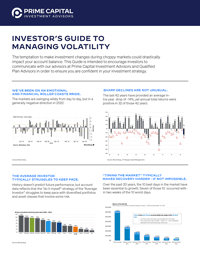You may have heard of liability insurance. It’s a type of insurance coverage mandated in all 50 states—although required in different minimum amounts—that you purchase as part of your automobile insurance policy. Auto liability insurance coverage helps cover the costs of the other driver’s property and/or bodily injuries if you’re found legally at fault in an accident. It can help cover the cost of damages or injuries you are held liable for, as well as legal expenses if you are sued.
Depending on your unique situation, it may be worthwhile to see if additional liability coverage could provide you with extra financial protection against lawsuits or legal risks.
Enter the umbrella policy. An umbrella insurance policy offers liability coverage that extends beyond the limits of standard vehicle, homeowners, or other types of insurance. This additional layer can be vital for individuals with significant assets or those involved in activities that increase the risk of lawsuits, such as being a landlord or owning properties other people use.
For example, if you have a rental property and let someone with a dog stay there, and the dog attacks neighbor on your property, you could be sued. This legal situation might you cost more than the liability limits of your rental property policy. But an umbrella policy could help protect you because it is extra insurance that provides protection beyond the existing limits and coverages of other policies.
There are many more examples; below is a quick reference of what umbrella insurance typically does and does not cover:
| Usually Covers | Usually Does Not Cover |
| Claims beyond coverage provided by home, rental, auto, watercraft policies for injury/damage to people/property | Damage to policyholder’s own property (e.g., home, car, possessions) |
| Policyholder plus members of household | Damage/injury that policyholder causes intentionally or criminally |
| Malicious prosecution, wrongful entry, invasion of privacy | Damage/injury from or during business or professional activities |
| Libel, slander, false imprisonment | Liability assumed contractually |
| Attorney fees/other expenses related to lawsuits | Liability related to armed conflicts |
Who Should Consider It
Umbrella policies are usually recommended for individuals with a net worth of $500,000 or more, business owners, high net worth individuals, landlords, those at risk for libel/slander, those involved in higher-risk activities. However, even individuals with modest assets may want to consider an umbrella policy to safeguard against unforeseen liabilities that could lead to significant financial loss. While it’s common to think umbrella polices are exclusively for those with high assets, it’s important to note that jury awards can easily go beyond your primary insurance policy limits. Truthfully, umbrella policies are for anyone at risk of being sued.
Costs
The annual cost of a $1 million personal umbrella insurance policy typically is around $200 to $300 per year, though exact premiums vary based on a few factors:
- Coverage amount: Policies usually range from $1 million to $5 million, with higher coverage increasing premiums.
- Net worth: Those with higher assets may need more coverage, potentially raising costs.
- Location: Rates differ by state, and regions with lower base policy limits may lead to higher umbrella premiums.
Choosing a Broker
Working with brokers who can shop around among multiple carriers can help you secure the best coverage and rates. After assessing your existing policies and evaluating potential liabilities to see if umbrella insurance might be a good fit, seek a reputable insurer who sells these policies. Start with your current insurer(s)—they may offer an umbrella policy in addition to your existing coverage and may even require you to purchase it through them, or require that you purchase high amounts of auto liability insurance before they will issue an umbrella policy. As a bonus, some insurers offer multi-policy discounts, making it worthwhile if you already hold a policy with them.
Whatever you choose, remember, it’s key to have a broker who proactively checks on your coverage needs as your net worth or property value changes, rather than just renewing the policy without assessment. You’ll also want to make sure to review your insurance policies every two years, or more frequently if you experience significant life changes.
If you’re looking to see how an umbrella policy could factor into your financial strategy, we would love to connect with you and your broker! Give Jason Noble a call today at (843) 743-2926 or call Andy Merchant at (316) 669-9413 to take the first step toward designing a portfolio tailored to you.
This article is for general information only and should not be considered as financial, tax or legal advice. Prime Capital and its associates do not provide legal or tax advice. Individuals should consult with an attorney or professional specializing in the fields of legal, tax, or accounting regarding the applicability of this information for their situations.
Advisory products and services offered by Investment Adviser Representatives through Prime Capital Investment Advisors, LLC (“PCIA”), a federally registered investment adviser. PCIA: 6201 College Blvd., Suite#150, Overland Park, KS 66211. PCIA doing business as Prime Capital Financial | Wealth | Retirement | Wellness.
Sources:
https://www.investopedia.com/terms/u/umbrella-insurance-policy.asp
https://fortune.com/recommends/insurance/what-is-umbrella-insurance/
https://www.investopedia.com/articles/personal-finance/040115/how-umbrella-insurance-works.asp
120324006 JG





